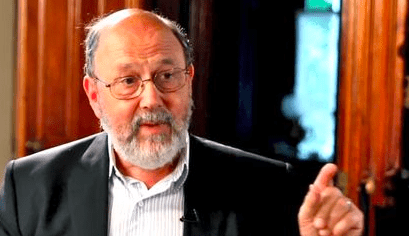That’s the problem with so much Christian theology. A bad view of God is destructive to the faith, to the church, and to the person. N.T. Wright, in Simply Good News, seeks to present how the Bible presents God and the first thing that has to be done to get this God in our minds and hearts is to dethrone the bad gods we have created.
For instance, the bully God — the bully in the sky, odd demands and gets petulant easily.
Most people today, in short, assume that the word God refers to a dull, distant, and perhaps dangerous being. Most of those who think like that try hard, not surprisingly, to believe that this being doesn’t exist. “I don’t believe in God,” said the novelist Kingsley Amis, “and I hate him.”
They are right.
That God—the dull, distant, and dangerous one—does not exist (128).
Deists, philosophers and — Wright thinks — even the Reformers got in on developing this bad, bully God:
But the Reformers, and then the Puritans, and then many other Christian movements such as the early Methodists, had a different reaction. They stressed the saving death of Jesus as the means by which the wrath of God had been averted. Often this was accompanied by great gratitude and ove. Often, however, it has left the semipagan vision of God untouched. That then produced a further reaction, which is where the modern angry atheists come in (129).
The God of the Bible — and he focuses on the Psalms — is a different kind of God from those in the ancient world. God is sovereign, holy, creator, and altogether loving and faithful. He gets his Barth on with this one:
If he is God, our primary role is not to analyze him but to worship him; it is not for us to figure him out but to let him figure us out (133).
Again, we see God in Jesus and this is the burden of Wright’s chapter, to fashion an understanding of God that takes Jesus as the one who reveals who God is by who he is himself. Wright sees three themes:
1. God is creator. Here is where a christocentric or christological framing of God changes the game:
Jesus doesn’t give an explanation for the pain and sorrow of the world. He comes where the pain is most acute and takes it upon himself. Jesus doesn’t explain why there is suffering, illness, and death n the world. He brings healing and hope. He doesn’t allow the problem of evil to be the subject of a seminar. He allows evil to do its worst to him. He exhausts it, drains its power, and emerges with new life. The resurrection says, more clearly than anything else can, “There is a God, and he is the creator of the world we know, and he is the father of Jesus, Israel’s Messiah.” That is the first part of the good news about God (137).
2. God is judge of creation. Here God judges death and sets the world right:
Nothing will be lost. All that is good and beautiful, and especially all that has been done out of love for God, out of the power of Jesus’s death and new life, and by the leading of the Spirit, will somehow be part of God’s new world (138).
3. God is lover. God creates and judges out of love.
So what does this love do when faced with broken limbs and broken lives? What does it do when confronted by denial and rejection? What does it do when humans who have the capacity to share in the innermost being of the Creator twist that capacity into its opposite, the capacity to hate and sneer and spit and snarl, to kick and stab and wound and kill? Does love then say, “Well, perhaps love is all very well when things are going fine, but now that it s all gone wrong, we’d better try the other way”? No, the good news that Jesus put into practice during his public career and that he enacted as he went to his death is this: love, faced with rejection, overcomes it with yet more love (140).












